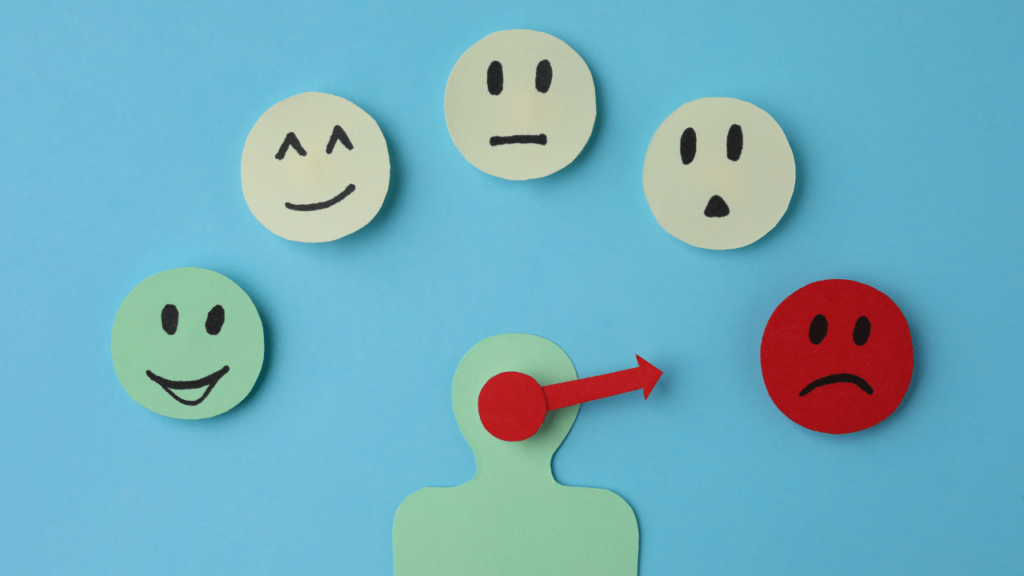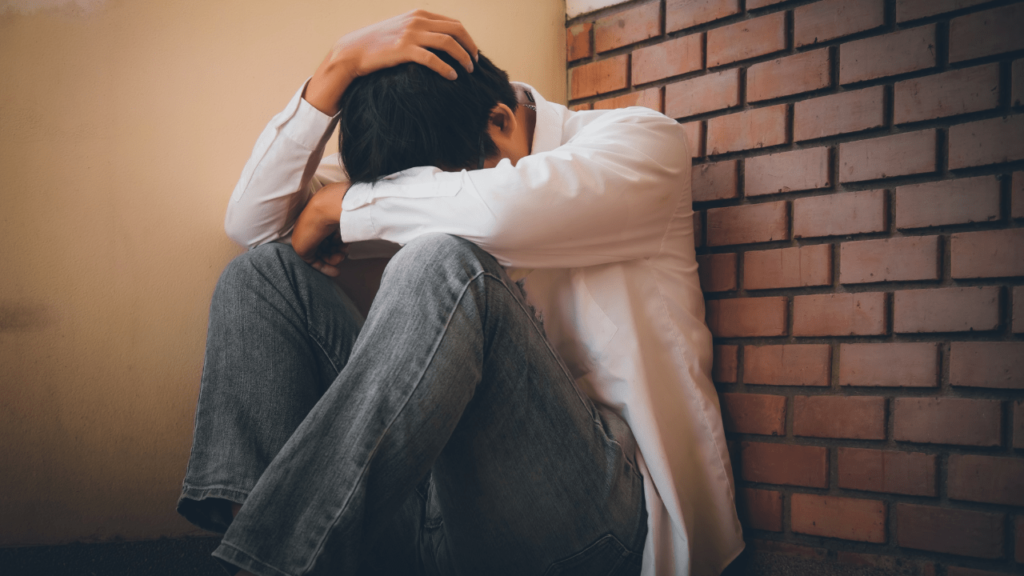Depression
Depression is a mental health condition that can deeply affect a person’s mood, thoughts, and daily life. It is characterized by an intense sadness and hopelessness that persists for a long time. People with depression may experience changes in their appetite and sleep patterns and have difficulty finding pleasure in activities they used to enjoy. It is important to understand that depression is a real illness and not something that can be easily overcome by force of will. If you or someone you know is struggling with depression, it is essential to seek support from loved ones or professionals who can provide help and guidance.

Symptoms of depression in teen
Here are some of the symptoms of depression in points:
- Persistent sadness or low mood.
- Loss of interest or pleasure in activities.
- Changes in appetite or weight.
- Sleep disturbances, such as insomnia or excessive sleep.
- Fatigue or lack of energy.
- Feelings of worthlessness or excessive guilt.
- Difficulty concentrating or making decisions.
- Restlessness or slowed movements.
- Recurrent thoughts of death or suicide.
- Physical symptoms, such as headaches or digestive issues.

Causes of Depression
Depression is a complex condition that can be caused by multiple factors, and it’s essential to approach the topic with sensitivity. Some common factors that can contribute to depression are as follows:
- Biological factors: This includes imbalances in brain chemicals or genetics.
- Environmental factors: Stressful life events, trauma, or abuse can be significant contributors.
- Psychological factors: Negative thinking patterns, low self-esteem, or perfectionism can also lead to depression.
- Social factors: Isolation, lack of social support, or relationship difficulties can cause depression.
- Medical conditions: Chronic illnesses, hormonal imbalances, or certain medications can also be contributing factors.

It’s essential to remember that depression is a complex condition, and each person’s experience is unique. If you or someone you know is struggling with depression, it’s important to seek professional help from a healthcare provider or mental health specialist. They can provide a comprehensive evaluation and develop an appropriate treatment plan.
Types Of Depression
Depression is a complex mental health condition that can manifest in different ways. Some of the common types of depression include:
- Major Depressive Disorder (MDD): This is characterized by persistent feelings of sadness, changes in appetite or sleep patterns, loss of interest, and difficulty concentrating.
- Persistent Depressive Disorder (PDD): This involves a long-lasting depressed mood that lasts for at least two years, with symptoms that may be less severe than MDD but can still have a significant impact on daily life.
- Seasonal Affective Disorder (SAD): It occurs during specific seasons, typically in the winter months when there is less sunlight, and may include low energy, increased sleep, and changes in appetite
- Postpartum Depression: Postpartum Depression occurs in some women after giving birth and is characterized by feelings of extreme sadness, anxiety, and exhaustion.
- Bipolar Disorder: Bipolar Disorder is not solely a depressive disorder, but it involves periods of depression alternating with periods of elevated mood, known as mania.

Factors affected by Depression
Depression can have a significant impact on a variety of aspects of a person’s life. Some common factors that can be affected by depression are:
- Mood: Depression can result in persistent feelings of sadness, emptiness, or a general lack of interest or pleasure in daily activities.
- Energy levels: People with depression may experience fatigue, and low energy, and have trouble finding the motivation to complete everyday tasks.
- Sleep patterns: Depression can disrupt sleep, leading to difficulties falling asleep, staying asleep, or experiencing excessive sleepiness.
- Appetite and weight: Changes in appetite and weight are common with depression. Some individuals may experience increased appetite and weight gain, while others may have a decreased appetite and weight loss.
- Concentration and memory: Depression can make it difficult to concentrate, make decisions, and remember details or important information.
- Relationships: Depression can strain relationships with family, friends, and romantic partners due to changes in mood, energy, and overall engagement in social activities.

Risk of Suicide in Depression
Depression can increase a person’s risk of suicide. It is crucial to take any mention of suicide seriously and urge the individual to seek assistance from a mental health professional or a helpline in their country. If you or someone you know is in immediate danger, please contact emergency services right away.


10 ways to reduce depression
- Practice deep breathing or meditation.
- Engage in regular physical exercise.
- Prioritise self-care activities like taking a bath or reading a book.
- Spend time in nature or go for a walk.
- Connect with loved ones and talk about your feelings.
- Try relaxation techniques like yoga or tai chi.
- Take breaks and engage in activities you enjoy.
- Get enough sleep and establish a consistent sleep routine.
- Limit your exposure to stressors, such as news or social media.
- Seek professional help if needed, such as therapy or counseling.
Professional ways to reduce depression
Dealing with depression often requires a combination of strategies. Here are some of the most common approaches that can be taken:
Therapy
Seeking help from a mental health professional, such as a therapist or psychologist, can provide a safe space for you to explore and address underlying issues that might be contributing to your depression. Different therapy approaches like cognitive-behavioral therapy (CBT) or interpersonal therapy (IPT) can help you develop effective coping strategies and address those underlying issues that are contributing to your depression.
Medication
In certain cases, a psychiatrist may prescribe antidepressant medication to help manage the symptoms of your depression. It is important to follow the guidance of a healthcare professional for proper evaluation and guidance.

Support network
Building a strong support system of friends, family, or support groups can provide emotional support and understanding during difficult times.
Self-care
Engaging in self-care activities, such as exercise, maintaining a healthy diet, getting enough sleep, and practicing relaxation techniques, can help improve your overall well-being.
Stress management
Learning effective stress management techniques, such as mindfulness, deep breathing exercises, or engaging in hobbies, can help reduce stress levels and improve your mood.
Why does depression increase in youth day by day?
Depression can affect individuals of all ages, but there are several reasons why it may be more prevalent in young people. These reasons include:
Hormonal changes
During adolescence, the body undergoes significant hormonal changes that can affect mood regulation and increase the risk of developing depression.
Academic pressure
Young people often face high academic expectations, such as exams, assignments, and college admissions. This pressure can contribute to stress and feelings of inadequacy, leading to depression.

Depression does not take away your talents- it just makes them harder to find.
Social media and comparison
The rise of social media can lead to constant comparison and feelings of inadequacy. Seeing others’ seemingly perfect lives can negatively impact self-esteem and contribute to depressive symptoms.
Identity and self-discovery
Adolescents are in a period of self-discovery, trying to figure out their identity and place in the world. This process can be challenging and overwhelming, potentially leading to depression.
Lack of coping skills
Young individuals may not have developed effective coping mechanisms to deal with stress and difficult emotions, making them more vulnerable to depression.